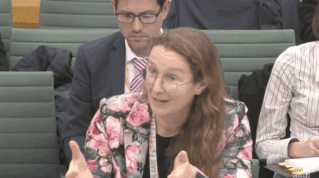The government must launch a national regulator and ban profits from state-funded private placements to fix the “broken” SEND system, a report commissioned by the country’s councils has said.
The findings come in a report, released today, funded by the County Councils Network and the Local Government Association.
CCN chairman Tim Oliver said the system “does not work for councils, schools and parents alike” and that the “case for reform is unquestionable”.
“The SEND system is broken,” he added.
“Parents often feel they struggle to access schools’ services, lack the capacity to support pupils, and councils have seen a doubling in needs over the last ten years, and have amassed deficits that threaten their financial solvency.”
According to the research, led by the Isos Partnership, there are “more children and young people than ever” with SEND, with the number of students with education, health and care plans leaping 140 per cent between 2014-15 and 2023-24.
Despite this, there haven’t been “better outcomes for children and young people”, as results for key stages 2 and 4 have “flatlined” since 2019.
Plus, researchers say the extension of the age range of the SEND statutory system to 25 has put pressure on the volume and demand within the SEND system. The report said the feedback from young people and leaders implied the extension “merely postponed” rather than removed or smoothed the cliff edge between education and adulthood.
Meanwhile, half of councils told the researchers they would be insolvent within three years if high needs deficits were added to their overall balances.
Here are the report’s recommendations to fix the system…
1. A ‘National Institute for Inclusive Education‘
The report said a national framework should be drawn up describing “types and levels of needs”. It will also provide clarity about the levels of need to be met in mainstream education and expectations of ordinarily available provision.
Such a framework would have to be “accompanied by evidence-based best practice guidance” and be overseen by a new body dubbed the National Institute of Inclusive Education.
Its role would be to act as “independent custodian” of expectations and best practice.
2. Clarify what ‘additional needs’ means
At the same time, the government should set out a “national ambition” centred around the principles of inclusion.
It argued that all aspects of policy related to education, young people’s services and support for additional needs should be “recalibrated” to support this aim.
A “prerequisite” would be to clarify what the term “additional needs” means and how they should be met, while offering clear and consistent expectations of inclusive practice in mainstream education and specialist provision.
3. Prohibit profits from state placements
The document called for independent providers to be involved in strategic planning in local areas. They could be used for highly specialist provision and expertise that “complements, rather than replaces” local state-funded provision.
But there should also be “equivalence of regulatory standards and funding” between the state-funded and independent sectors and proposed a ban on independent providers on making profits for shareholders from state-funded placements of young people with SEND.
4. A ‘core offer’ and ‘wide reaching’ post-16 reform
To promote inclusion in mainstream settings, the study proposed the development of a new “core offer” of targeted, multi-disciplinary support, including therapists and educational psychologists.
All post-16 education providers would be able to access the provision without children requiring a statutory plan.
It also proposed funding reforms in post-16 education so that a “much higher” proportion of SEND funding comes from core budgets to allow “maximum flexibility” in how it’s used.
“This is not simply about asking schools, colleges and settings to do more, but fundamentally redesigning the systems of support, training, funding, curriculum and accountability to enable, support and incentivise inclusion,” the report said.
5. Reform SEND statutory framework
The report warned the SEND system is “more adversarial” than it was when the government implemented reforms 10 years ago.
The number of tribunal appeals rose by 334 per cent between 2014-15 and 2022-23, while the rate of appeal increased from 1.2 to 2.3 per cent.
The report proposed reforms to parts of the SEND statutory framework so that the state can set out “a clear, consistent, equitable and sustainable offer of support for young people” with additional needs.
It should “maintain a role for parental preference in admissions” so parents and carers can “exercise equivalent choices” to those of young people without additional needs.
But to remain equitable and sustainable, they said the state must clarify “where the limits of individual choice and entitlement lie”.
The framework should also include “independent, non-judicial mechanisms for dealing with disagreements” about access to provision. Instead of using tribunals, the report envisages “a role for the National Institute”.
To aid transition into other education settings, researchers suggested a new learner record for SEND learners that sets out what they can do and what support they need.
6. Track progress after school and college
The report argued for each local authority area to have a “destinations and progression service”.
This service would provide oversight of all children and young people “as they approached the transition from children’s to adult services and in the years after that age of transition”.
It would be charged with providing additional support to young people who needed it for two years after the age of transition and tracking their outcomes and destinations.
The proposed the age of transition should be standardised across education, health and care.
The report said the service should also co-ordinate work to help them achieve “their aspirations as they move into adulthood”.
7. Local inclusion partnerships
New local inclusion partnerships – which would include council, health service, education and parent carer forum representatives – could be formed to handle strategic planning.
Among other things, they would be able to “commission and open their own state-funded provision to reflect local needs”.
8. Revamped workforce strategy
The National Institute of Inclusive Education would lead on developing a cross-government, multi-disciplinary workforce strategy for inclusive education, additional needs and preparation for adulthood.
For example, it would outline the skills and practitioners needed to deliver “the core wraparound targeted offer”.
The body would also advise on the content of training and CPD across the SEND workforce.
The government must launch a national regulator and ban profits from state-funded private placements to fix the “broken” SEND system, a report commissioned by the country’s councils has said.















Your thoughts